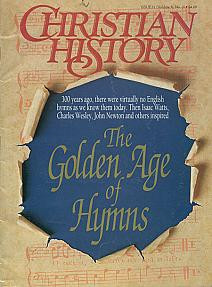William J. Kirkpatrick, the Famous Hymnwriter, Was Born Today

The hymnwriter William Kirkpatrick was also a soul-winning preacher.
THE BABY who grew up to become a famous Methodist gospel hymn writer, was born on this day, 27 February 1838 in Duncannon, Pennsylvania. His father taught music, and under his influence, Kirkpatrick learned to play several instruments at an early age. Later his talent on the flute, violin, and cello was in demand, especially with church choirs and at rehearsals. During the American Civil War, he was fife major for the 91st Regiment, Pennsylvania Volunteers.
Kirkpatrick published forty-nine music collections that sold millions of copies. The first of these came about when he wrote down a song at one hearing, harmonized it, and handed it to music-enthusiast A. S. Jenks. Jenks was so impressed he gave Kirkpatrick the task of editing a book of camp-meeting songs.
In his desire to develop his talents, Kirkpatrick studied vocal music under a leading vocalist and joined several music societies at which he could hear notable singers and acquaint himself with the choral works of major composers such as Handel and Haydn. Although he was not able to support himself from music for many years (he provided for his family as a carpenter,) he was eventually able to devote himself to writing Christian hymns. He wrote the tunes to many favorite hymns, among them “Jesus Saves,” “‘Tis so Sweet to Trust in Jesus,” “Redeemed, How I Love to Proclaim It,” and “He Hideth My Soul.” His studies of composition enabled him to make his music fit fluidly to lyrics.
He wrote both words and music to the song “Lord, I’m Coming Home.” Burdened for the salvation of a hired soloist at an evangelistic meeting, Kirkpatrick knelt in his tent and prayed long and earnestly for the singer’s soul. The words to “Coming Home” formed in his mind. He wrote them down and set them to a haunting tune. Visibly moved, the soloist stayed for the sermon and gave his heart to Christ that night. Kirkpatrick’s song became a popular invitation hymn that drew many other straying souls to Christ.
I’ve wandered far away from God, Now I’m coming home
The paths of sin too long I’ve trod, Lord, I’m coming home.
Coming home, coming home—never more to roam
Open wide thine arms of love, Lord I’m coming home.
Kirkpatrick was eighty-three years old when he died. His wife awakened late at night to notice the light in her husband’s study was still on. She called to him. When he did not answer, she went in and found him slumped over the manuscript of the last hymn he ever wrote: “Just as Thou wilt, Lord, this is my cry. Just as Thou wilt, to live or die. I am Thy servant, Thou knowest best, Just as Thou wilt Lord, labor or rest.”
—Dan Graves
- - -------
Kirkpatrick was from the Golden Age of Hymns






